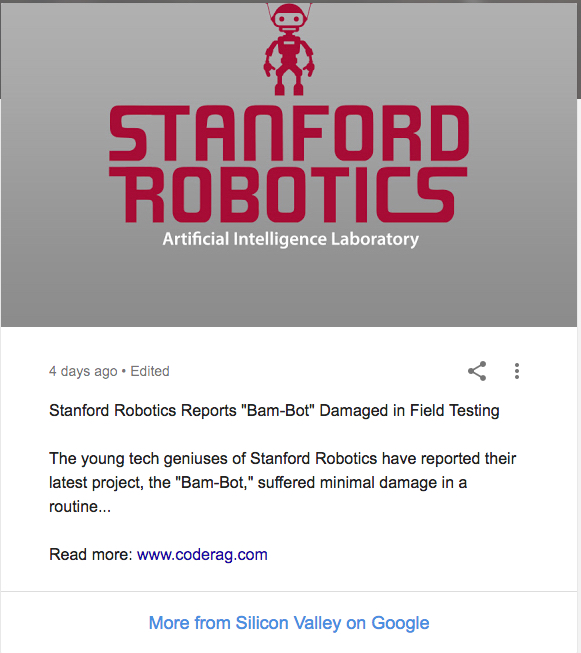The posts can be up to 14,400 characters in length and can include links and up to 10 images or videos. The pages also include options to share them via Twitter, Facebook or email.
Each post is hosted by Google itself on a dedicated page, and appears in a carousel in results pages for searches related to their authors for up to a week, a Google spokeswoman said. After seven days, the posts remain live but won’t be surfaced in search results. Rather, they can be accessed via a link.
Google described the program briefly on a very basic page:
Verified individuals and organizations can now communicate with text, images and videos directly on Google. Creating content is fast and simple, and once published, posts will appear instantly in search results related to the publisher. Each post can also be shared on popular social networks.
Currently this experimental feature is invite-only. If you are a public figure or organization and would like to publish on Google, please join the waitlist.
Search Engine Land has covered the program, which it’s referring to as “Google Posts,” since results started popping up in January, when presidential candidates were able to use them. The cards “added little value in return for Google giving up its valuable search results space,” Danny Sullivan wrote.
Indeed, for now, Google Posts — or whatever it’s ultimately called — feels entirely promotional and almost completely useless to an end user, with the cards just linking back to each other in an endless stream and providing very little interesting or original information. For example, if you type “Silicon Valley” (one of the current beta partners) into Google, you’ll see this carousel:

Click on one of the stories and up pops a basic card with a few words and a link to an outside page:

This clearly isn’t the final iteration of whatever the product will be, but concerns like these seem premature especially since the cards I’ve seen so far seem primarily intended to drive users back to a publisher’s own website.
One comment:
Muchas gracias. ?Como puedo iniciar sesion?
Trackbacks:
Leave a comment